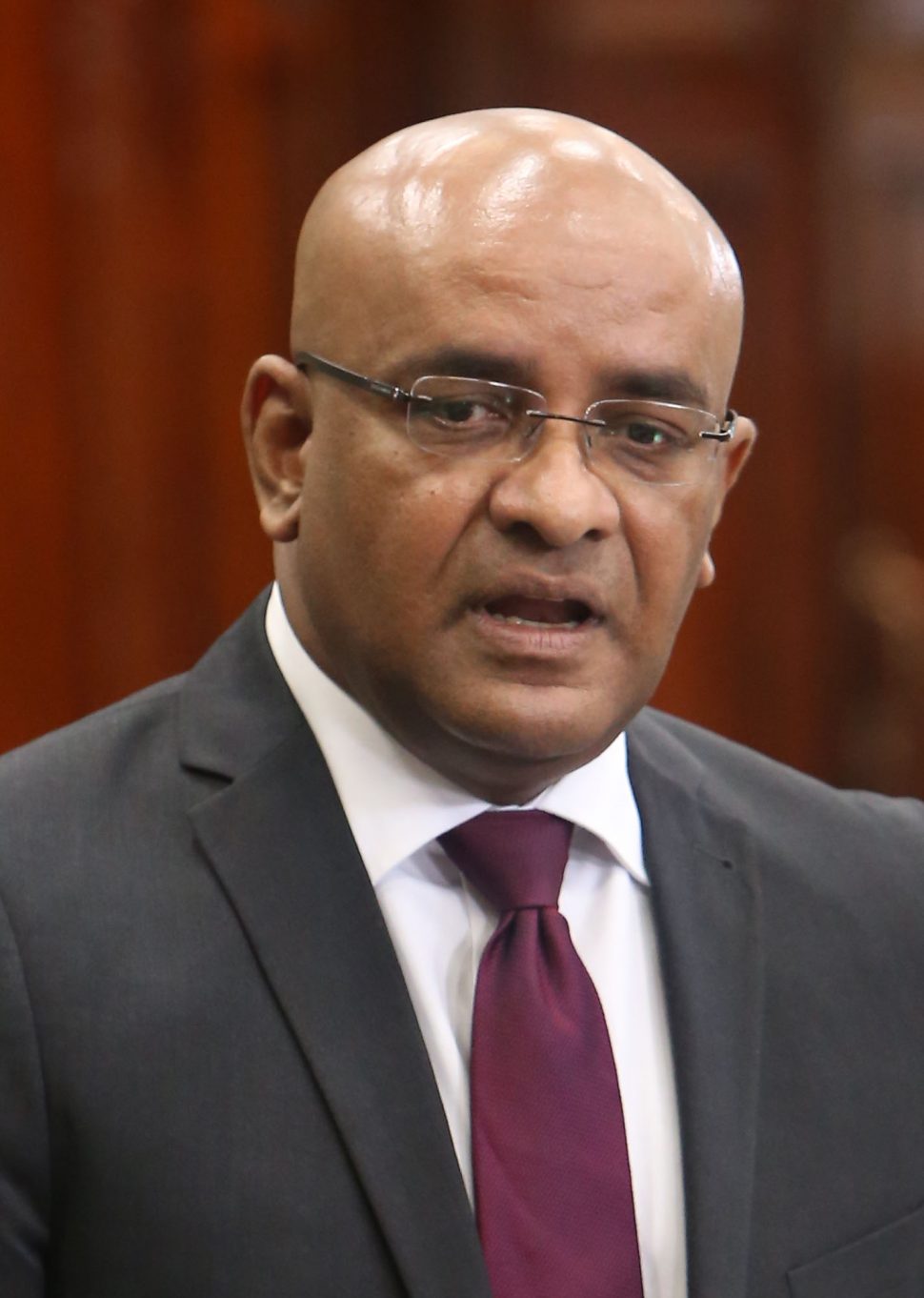The opposition People’s Progressive Party (PPP) is satisfied with yesterday’s ruling by Chief Justice (ag) Roxane George-Wiltshire and said it shows that the current house-to-house registration exercise is a waste of time as names cannot be deleted without cause from the National Register of Registrants (NRR).
“The Chief Justice ruled that house-to-house [registration] itself is not unconstitutional but she said that GECOM [Guyana Elections Commission] cannot operate as if it is in a normal election cycle. She said that residency is not a qualifying requirement and therefore those names of persons on the list, the NRR and the OLE [Official List of Electors], cannot be removed unless deceased or becomes disqualified based on Article 159 of the Constitution,” Opposition Leader Bharrat Jagdeo told a news conference yesterday following the ruling.
“The entire house-to-house [registration] done so far has been an entire waste of money because you cannot remove people from the NRR who have already registered. That means that the NRR that we have used to extract the OLE for all the elections before, that remains intact. Once your name is on the NRR and you voted in the last elections, they cannot remove your name. We are vindicated in telling people not to register. Your names cannot be removed whether you register or not. Not even GECOM can remove your name from that database. That is what we had been fighting for,” he added.
The Acting Chief Justice yesterday ruled in a case brought by Christopher Ram that the house-to-house registration exercise presently underway is not unconstitutional and it is not for the court to determine if it should be conducted but it is for GECOM to decide this while acting in line with the Constitution.
House-to-house registration, she said, was a measure that was available to GECOM.
While the registration exercise will develop a new register, Justice George cautioned that the removal of names from the list would be unconstitutional unless the said persons are deceased or otherwise disqualified under Article 159 (2) (3) or (4) of the Constitution.
Jagdeo said that the party was content with the ruling and will not appeal as the Chief Justice made clear on the point that they wanted and that was that persons would be disenfranchised.
“We felt that they would remove thousands of people because they were not at home or abroad. We expect GECOM will accept the ruling and move swiftly,” the Opposition Leader said.
He reiterated that the party believes that house-to-house registration would “take us to elections next year” and said that was not the route the party wanted.
“The CCJ [Caribbean Court of Justice] ruling is clear. It said Article 106 was triggered. Elections ought to have been held by March of this year. We went to the courts in the absence of the commission and asked the court two things: to stop the house-to-house [registration] exercise; and that we believe this exercise is unconstitutional. On that basis, we said ‘do not register’ because there would have been the scrapping of the database,” he said.
The current National Register of Registrants Database (NRRDB) was created following the last house-to-house registration exercise which lasted from January 7 to July 4, 2008.
According to GECOM’s 2008 Activity Report, the database was created based on a June 14, 2007 agreement between the commission and the parliamentary political parties to create an indisputable NRRDB which could be used as the basis for the preparation of future Electoral Lists, and which would be commonly acceptable by all stakeholders as being unblemished.
The decision was also influenced by reports from international observers of the 2006 General and Regional Elections, who documented their calls for a house-to-house registration exercise to be undertaken prior to the holding of Local Government Elections.






